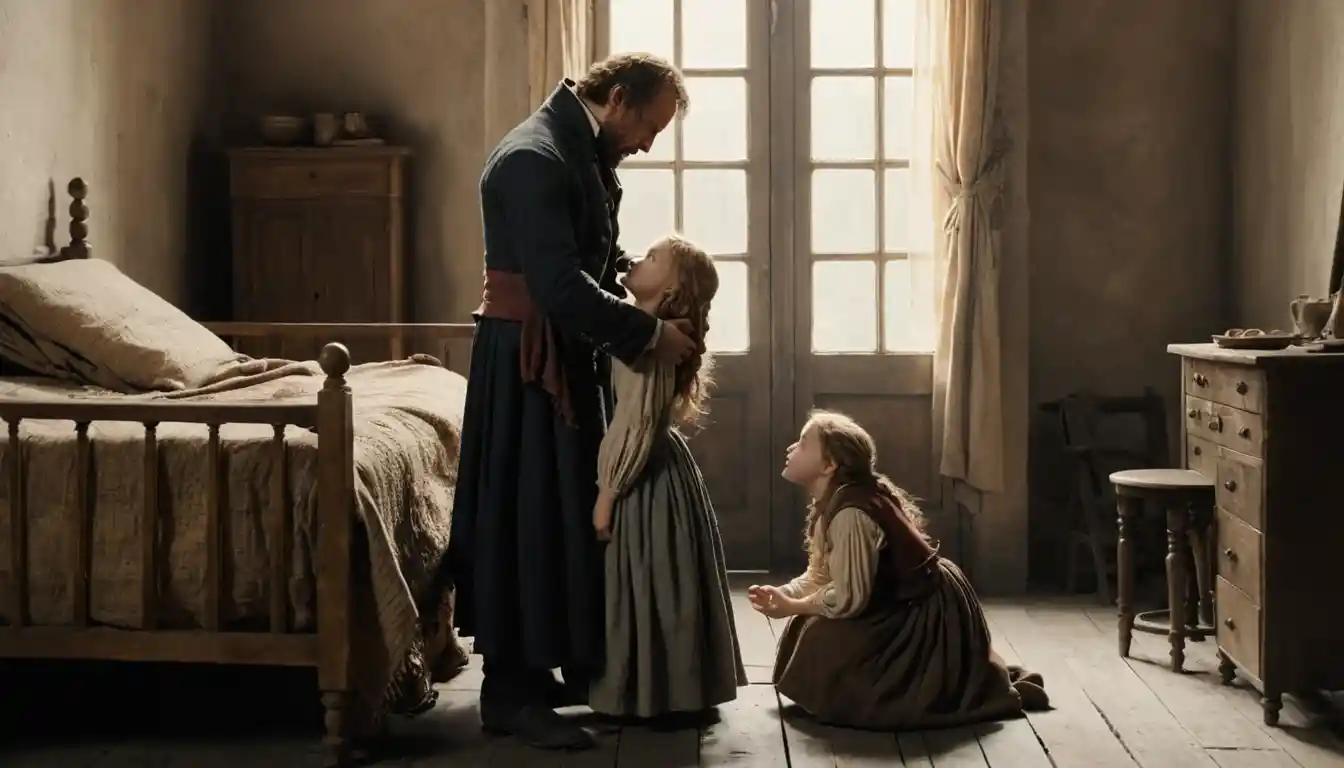Les Miserables is a timeless story that has captured hearts all over the world. The journey of Jean Valjean, a man who goes from being a prisoner to a hero, is a powerful tale of redemption, justice, and love. This post will explore his transformation, the characters around him, and the struggles he faces while being pursued by the relentless Inspector Javert.
What is Les Miserables?
Les Miserables, which means “The Miserable Ones” in French, is a novel written by Victor Hugo. First published in 1862, it tells the story of Jean Valjean, a man who was imprisoned for stealing bread to feed his starving family. The novel covers his life after his release, his constant battle for redemption, and his encounter with numerous characters who impact his journey.
The story takes place during a time of political and social unrest in France, with themes of justice, love, and moral struggle at its core. Les Miserables is not just about Valjean; it also follows the lives of other important characters like Cosette, Fantine, Marius, and the unyielding Javert.
Les Miserables Movie and Adaptations
Over the years, Les Miserables has been adapted into several movies, television shows, and even a popular Broadway musical. The 2012 movie adaptation starring Hugh Jackman as Jean Valjean and Russell Crowe as Javert is one of the most well-known. In this movie, viewers can see the emotional depth of Valjean’s character and his struggle to stay true to his moral values despite the relentless pursuit of Javert.
If you haven’t seen it yet, the Les Miserables movie is a must-watch! It beautifully captures the essence of the story, with music, drama, and powerful performances.
The Meaning of Les Miserables
At its core, the meaning of Les Miserables is about suffering and the human desire for a better life. Valjean’s journey from being a criminal to a respected man reflects the possibility of redemption and the fight for a better life, no matter how dire the circumstances. Through the character of Javert, we also see the struggle of blind justice versus mercy, a key theme that runs throughout the novel.
Les Miserables shows us that no matter how poor, oppressed, or misjudged we are, it is always possible to change and fight for what is right.
Meet the Key Characters in Les Miserables
Jean Valjean
Jean Valjean is the central character in Les Miserables. He starts the story as a man who has spent 19 years in prison for stealing a loaf of bread. After his release, he faces rejection and hardship, but through an act of kindness, he reinvents himself. Valjean becomes the mayor of a town, a successful businessman, and a father to a young girl named Cosette.
His transformation from a prisoner to a hero is one of the most compelling parts of the story. He demonstrates compassion and kindness, especially in his care for Cosette, and he also strives to live an honorable life despite his troubled past.
Javert
Javert is the strict and unrelenting police inspector who pursues Jean Valjean throughout the story. He represents the law and believes that justice must be rigid and absolute. His obsession with bringing Valjean back to prison creates an ongoing conflict throughout the story. Javert’s inability to reconcile his sense of justice with the mercy shown by Valjean is a key theme in the story.
Cosette
Cosette is the young girl that Valjean adopts after the death of her mother, Fantine. Cosette symbolizes innocence and hope. She grows up under Valjean’s care and eventually falls in love with Marius, another key character. Her transformation from a poor, abused child to a young woman in love shows how life can change for the better, even under the harshest circumstances.

Fantine
Fantine is Cosette’s mother. She is a tragic figure in the story, struggling to care for her daughter while working in a factory. After losing her job, she turns to desperate measures to ensure Cosette’s future. Fantine’s story represents the suffering of the poor and the lengths to which people will go to protect their loved ones.
Marius
Marius is a young revolutionary who falls in love with Cosette. His love for her drives much of the plot, and his involvement in the revolution is central to the story’s political themes. Marius represents youthful idealism and the desire for change.
Les Miserables and the Theme of Justice
One of the most powerful themes in Les Miserables is justice. Jean Valjean is a man who seeks redemption, but he is constantly pursued by Javert, who represents the law and order of society. Javert believes that Valjean must be punished for his past crimes, no matter how much he has changed. This creates a complex moral dilemma for both characters.
Valjean believes in mercy and compassion, while Javert holds firm to his belief in strict justice. This tension highlights the difference between the law and true justice – is it right to follow the law blindly, or is it more important to show mercy and understanding?
The Song “Do You Hear the People Sing?”
One of the most iconic songs in Les Miserables is “Do You Hear the People Sing?” This song is sung by the revolutionary students and expresses their desire for freedom and justice. The song has become an anthem for many people who fight for change and equality. It’s a powerful reminder that people who struggle for what is right can make a difference.
Do you hear the people sing? is not just a line from a musical; it has become a symbol of resistance against oppression and injustice. The lyrics inspire us to stand up for what we believe in, even when it seems like the odds are against us.
Les Miserables Broadway and Its Success
Another major adaptation of Les Miserables is the Les Miserables Broadway musical. This version of the story has captivated audiences around the world with its incredible music, emotional depth, and stunning performances. The musical is known for its moving songs such as “I Dreamed a Dream” and “On My Own,” which have been performed by countless artists over the years.
The Les Miserables play continues to be one of the most successful Broadway productions, with multiple revivals and performances worldwide. The musical has introduced the story to new generations, ensuring that Les Miserables remains a cultural touchstone.
Les Miserables Book and Its Impact
The original Les Miserables book by Victor Hugo is a classic of world literature. It is considered one of the greatest novels ever written. The book goes into great detail about the political, social, and historical issues of 19th-century France. It also explores the lives of many characters, including Valjean, Fantine, Cosette, Javert, and Marius.
Reading the book offers a deeper understanding of the characters’ motivations and the themes of love, redemption, and justice. The novel is lengthy and full of historical references, but it is well worth reading for anyone who wants to fully appreciate the story behind the characters and events.
Why is Les Miserables Still Relevant?
Les Miserables continues to be relevant even today. The themes of justice, equality, and the struggle for a better life are timeless. Valjean’s transformation and his fight for redemption resonate with people from all walks of life. His story reminds us that everyone has the ability to change, no matter their past.
The story of Les Miserables also highlights the importance of kindness and compassion in a world that can often be harsh and unforgiving. It challenges us to think about how we treat others and whether we are willing to offer forgiveness and second chances.


